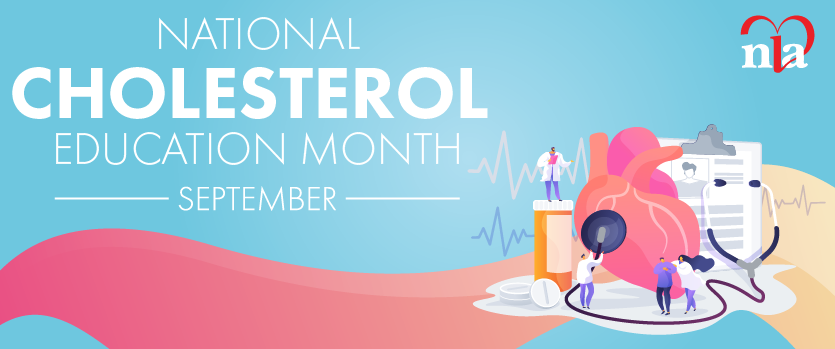All
Dyslipidemia, or high cholesterol, means you have too many lipids (fat) in your blood. Nutrition interventions in youth with dyslipidemia provide short- and long-term benefits without adverse effects on growth or maturation. Counseling by a registered dietitian nutritionist (RDN) is... more
Statin drugs have been studied in numerous controlled trials involving hundreds of thousands of study participants. Their use has resulted in reduced coronary artery disease (CAD) mortality, morbidity and, in several studies, all-cause mortality. Even though clinical trial evidence and clinical... more
On Friday, May 3, the U.S. FDA approved LIPTRUZET (ezetimibe and atorvastatin) tablets for the treatment of elevated low-density lipoprotein (LDL) cholesterol in patients with primary or mixed hyperlipidemia as adjunctive therapy to diet when diet alone is not enough. For more information, please... more
This week, the NLA is a partner featured on the Sharecare homepage. Sharecare is a health and wellness social media platform that connects people with top-ranking experts. To see updates, click here and scroll to the bottom of the page. more
Peripheral artery disease (PAD) is a common manifestation of systemic atherosclerosis affecting 20% of Americans over the age of 801 and over 200 million people worldwide.2 As well as being common, it also carries high mortality and morbidity; and yet, patients with PAD are overlooked on multiple... more
Pursuant to the advice of the Chapter of the National Lipid Association, the following updates to the Bylaws are proposed to the NLA membership for adoption at the NLA Business Meeting on May 18, 2019. The purpose of the update is to restore the position of the at-large directors on the chapter... more
Introduction Cardiometabolic syndrome is an aggregation of cardiovascular, metabolic, and renal abnormalities that includes central/visceral obesity, hyperinsulinemia, hypertension, and dyslipidemia.1 Approximately 47 million individuals in the United States are currently living with... more
The Philadelphia Lipid and Atherosclerosis Club PLAC Wednesday, December 10, 2014 6:00 PM "CT scan for predicting cardiovascular risk” Presented by: Douglas Jacoby, MD, FACC Division of Cardiovascular Medicine University of Pennsylvania... more
In Greek mythology Sisyphus was the king of Ephyra (now known as Corinth). He was punished for his self-aggrandizing craftiness and deceitfulness by being forced to roll an immense boulder up a hill, only to watch it come back to hit him, repeating this action for eternity.”1 It is a bit... more
Statin-associated muscle symptoms (SAMS) are the most common form of statin intolerance and are associated with increased risk of cardiovascular events that manifest from statin underutilization and discontinuation.





.jpg)
.png)










